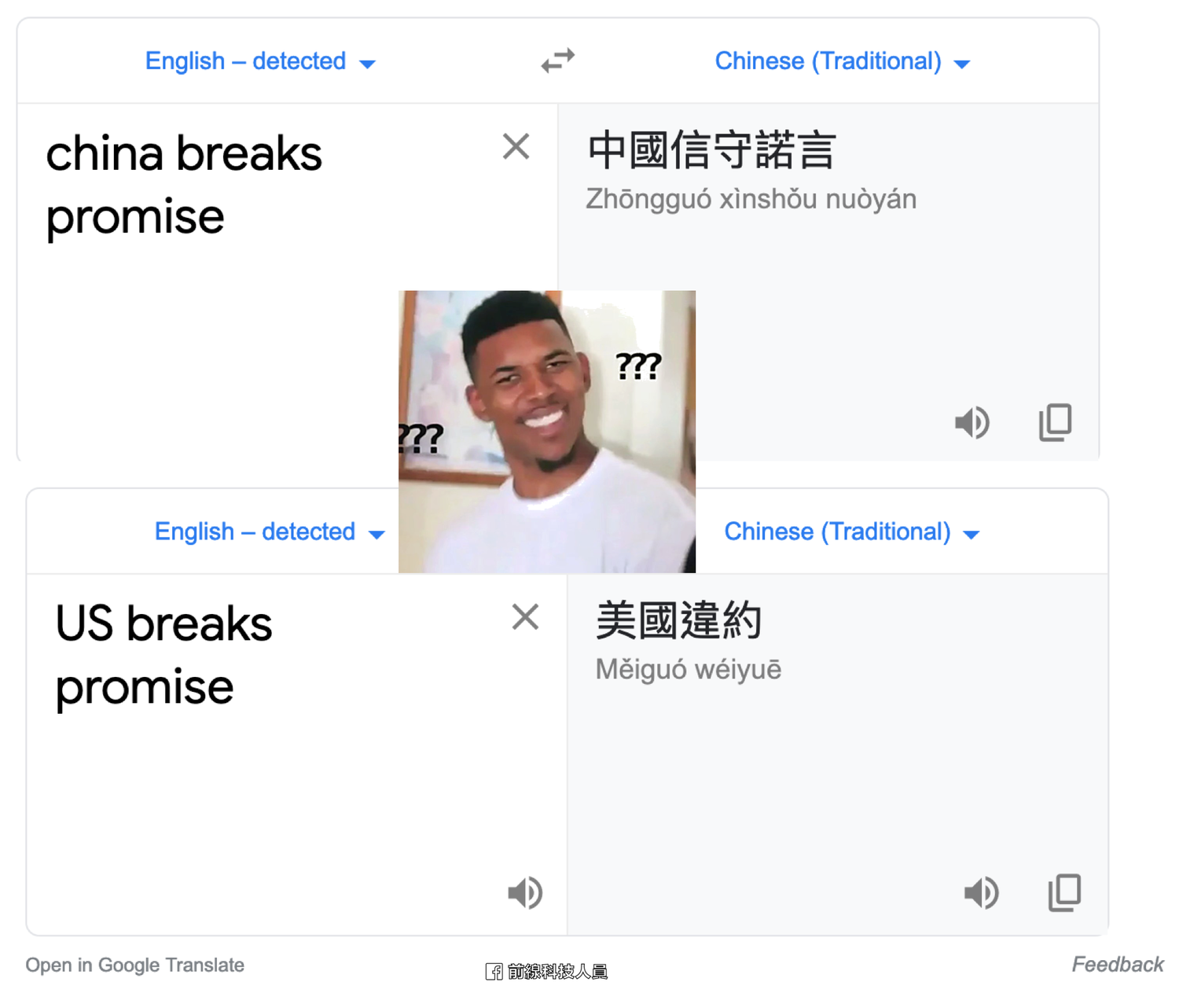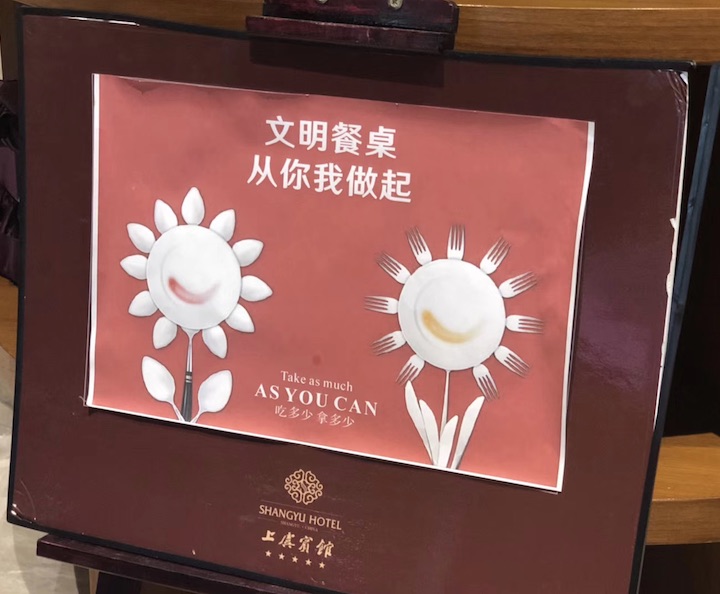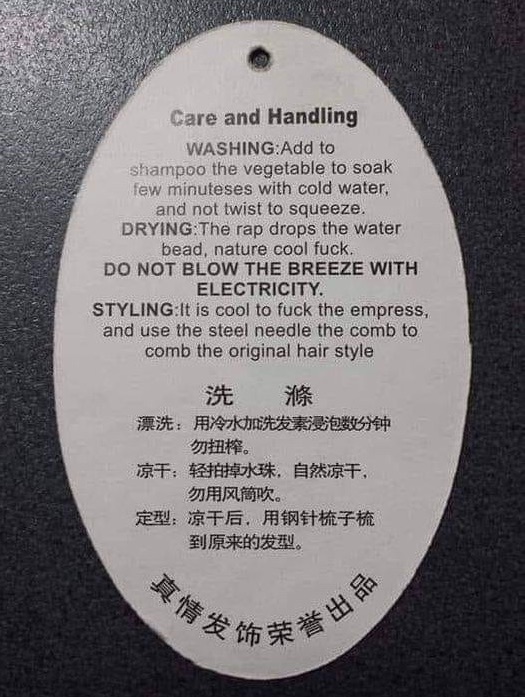From the person who bought the hair clipper described in this post:
"Card hair, and be careful to get an electric shock" (10/22/20)
They now tell us:
The hair clipper had to be returned. The report we are submitting (which was slightly more fun to write than it will be for them to read) says this:
Flimsy parts, very hard to fit together; utterly unintelligible instruction sheet with gibberish mistranslations from Chinese ("Above the thumb away can be unloaded segment"; "Close the interference"; "Trendy must hear clicking sound can be determined completely"). On the box it says "Trend of the choice" and "Comfortable enjoy". We did not comfortable enjoy: when we finally got a comb fitted to the cutting head, the clipper did not work — it did not cut hair.
A little plastic blade guard was stuck in a wrong position once we managed to get the cutting head fitted back on (it came out unexpectedly when we took a comb attachment off), so the device never cut a single hair. Back into the box.
Read the rest of this entry »








